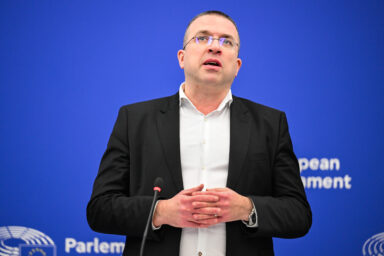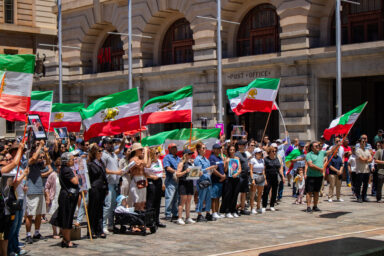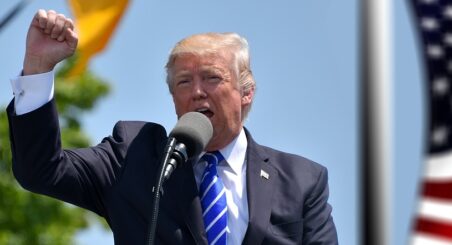Europe will not act as one until it fears as one. Thomas Greminger, executive director of the Geneva Centre for Security Policy, thinks mismatched threat perceptions across member states block any meaningful EU-wide security strategy.
Europe will be only able to ensure its own security when it is broadly united in its perception of what constitutes a threat, Ambassador Greminger told EU Perspectives. Sadly, it is far from united.
Some of the principal reasons are difficult to change, as it is geography and history that shape Europe’s map of fear. Poland and the Baltic states fixate on Russia. Italy, Spain and Greece fret about migration, instability in North Africa and the Middle East, and maritime risks. France, Germany and the Netherlands juggle both fronts while eyeing cyber-attacks and economic coercion from China.
“These differences create competing priorities and make it difficult to form a unified narrative about what security means, what threatens it, and how to defend it,” Mr Greminger explains. He urges leaders to recast defence as a bastion of shared values. “To frame security as a key pillar of European sovereignty and values: protecting European security would be about defending democracy, human rights, rule of law, in essence the European way of life. It would be an important underpinning of European strategic autonomy,” he argues.
You might be interested
ReArm Europe risks making matters worse
Unity remains possible, he insists, provided capitals agree on facts. “It is feasible to build cohesion around a more aligned threat assessment and shared goals. I would also admit this to be much more challenging as long as there is an ongoing war in Europe,” he concedes. War in Ukraine locks views in place.
Even so, Brussels pushes ahead; but the cure sometimes appears likely to exacerbate the malaise. The ReArm Europe plan aims to raise spending and knit defence industries, but Mr Greminger stays wary. “There is the worry about fiscal and economic sustainability given the high public debt and large deficits many member states already carry,” he cautions.
Pouring billions into weaponry could strain treasuries and squander cash. He notes, “There is a considerable risk of ramping up spending without matching increases in production capability or doing so in a way that deepens procurement nationalism rather than fostering a consolidated European defence industrial base.”
Menaces multiply
The social bill worries him most. “My main concern, however, is that diverting large amounts of public resources to defence implies high opportunity costs in other areas – social services, climate measures, education – and thereby undermining social cohesion, a key factor of state resilience,” he says. Armies cannot march on empty classrooms or eroded welfare states.
Yet while budgets stir quarrels, threats refuse to wait. Greminger warns that transnational menaces still lurk. Hybrid assaults barrage elections. Climate shocks uproot people. Crime networks span borders faster than police forces. “They haven’t disappeared with the resurgence of conventional military menace,” he says. Terrorism, violent extremism, organised crime and trafficking persist.
New dangers multiply as climate change strains societies. Emerging technologies—AI, quantum computing, biotechnology and human augmentation—blur lines between civil and military tools. “In addition, there are hybrid threats that need to be addressed: disinformation, cyber threats, drones and more broadly threats to our institutions upholding human rights, the rule of law and democracy. So, security policy in the 21st century has to be comprehensive and go far beyond hard security,” Mr Greminger tells EU Perspectives.
Shared purpose beats hardware
Ambassador Greminger’s remedy is blunt: first agree on what scares Europe, then decide how to pay for protection. That means adding drones and data breaches to artillery counts. It means accepting that an energy pipeline or a hospital server can crumble a state as surely as a missile barrage. Above all, it means talking less about hardware quotas and more about shared purpose. Europe will not act as one until its citizens believe defence spending defends more than just generals’ wish-lists.
There are hybrid threats that need to be addressed: disinformation, cyber threats, drones and more broadly threats to our institutions upholding human rights, the rule of law and democracy. — Thomas Greminger, Executive Director of the Geneva Centre for Security Policy
Mr Greminger is referred to as “Ambassador” in connection with the seniority of his current role as Executive Director, in line with Swiss diplomatic practice. While Switzerland does not confer honorary ambassadorships, the title “Ambassador” is formally attributed to individuals holding certain high-ranking positions, including previous roles such as his post as Permanent Representative to the OSCE, the United Nations, and other international organisations in Vienna (2010–2015). The use of the title reflects the level of diplomatic seniority associated with both his past and present positions. Our story reflects this convention.
Since early 2021, Mr Greminger has been Executive Director of the Geneva Centre for Security Policy, an independent foundation and international training center.











